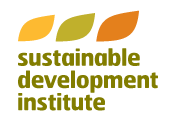We, the delegates, from Ghana, Nigeria, Cameroon, Sierra Leone, Guinea, Liberia and our partners from UK attending the Regional Dialogue on Oil Palm Development in West Africa from November 27th and 28th 2019, engaged in experience sharing on community rights, and the role of stakeholders in the context of oil palm plantation development and came to the following conclusions:
-
Some countries in the region are initiating reforms aimed at increasing financial flow through investments, and addressing poor governance and management of natural resources including land and forests;
-
Despite these national efforts aimed at reforms, the acquisition of land by oil palm companies is often characterized by lack of respect for the rights of local communities;
-
Although there has been progress in some countries over the last decade in enacting laws that support community rights, implementation of these laws remain a challenge;
-
Other factors hindering progress in the sector include: inadequate legal framework, limited awareness within communities about their rights and weak law enforcement by national institutions;
-
Although the Roundtable on Sustainable Palm Oil may not be the complete solution for the protection of human rights and the environment, it has been useful tool for some communities in countries where governance is weak;
-
The rights and interests of women and other marginalized people are not fully recognized, respected and protected in land dealings between communities and oil palm companies, and their representation and participation in community decision-making processes are treated poorly;
-
There is high risk to the security and safety of human rights defenders, CSO actors and local community activists, and they operate at the risk of being targeted by company and state securities during the course of their work;
-
Progressive community leaders and local government officials are often victims of reprisals including arbitrary and sometimes unlawful dismissals; and
-
The increasing amount of land being allocated to large-scale mono-culture contribute to climate change, threatens food security, community livelihood, and ecological wellbeing.
